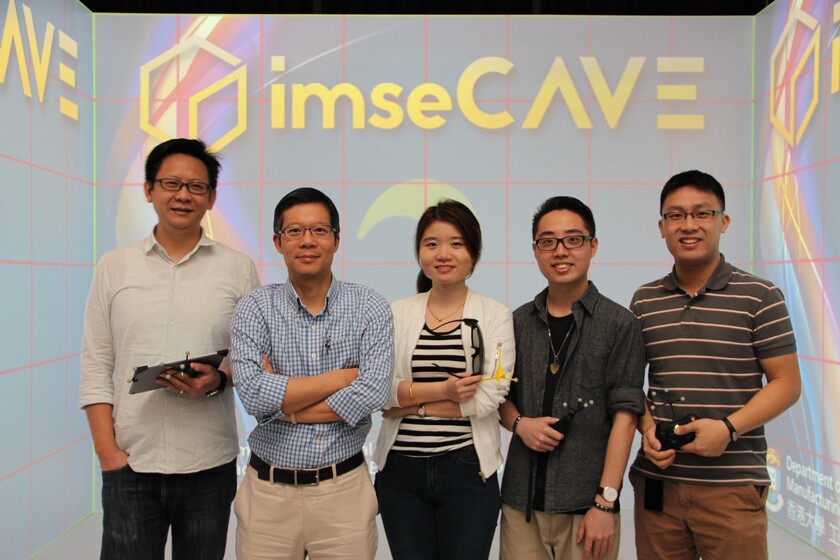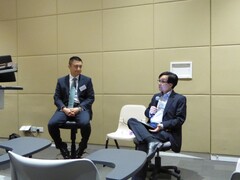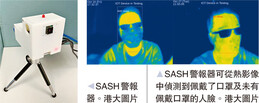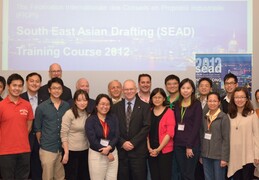Where Virtual Worlds have Become a Reality
07 Dec 2016
Back to NewsThe imseCAVE has become the go-to technology in Hong Kong for creating virtual worlds
The imseCAVE, developed by the engineers at HKU, has become the go-to technology in Hong Kong for creating virtual worlds used by industry, business, educational institutions and government for training, system development and many other purposes.
The Department of Industrial and Manufacturing Systems Engineering uses high-end computers, projectors and motion detectors that not only immerse users in imaginary environments but let them interact with these environments.
Its work began in the late 1990s when it developed CAVE technology imported from the US – for "cave automatic virtual environment" – and applied its own research to adapt it for training crane operators at the container terminal. The walls and floor of the imseCAVE are full-scale screens and the user sits in the middle and, with more recent developments, can move around the space.
In more recent years the technology has even been used to train police detectives in inspecting a crime scene. Real-time position tracking means trainers can follow and record the user's body position and their movements as they inspect the scene.
A wide range of other clients, from the Airport Authority and Cathay Pacific to the Hospital Authority, other universities and even an international games manufacturer, have used the system or shown keen interest in doing so. Each client gets a system tailor-made for their needs.
Dr Henry Y.K. Lau has been involved in the imseCAVE research from the early days. "This is a tool for creating a virtual world, with interactive objects, an interactive environment, even virtual people in it," he said. "Many fully immersive CAVE systems being used in Hong Kong has some involvement with us."
The imseCAVE technology is also being spun into a startup. Earlier this year Dr Lau's former PhD students received TSSSU@HKU (Technology Start-up Support Scheme for Universities) funding to set up a start-up company that will develop the technology for primary and secondary schools.
"Our vision for this startup is to push for a very reachable, low-cost immersive VR solution for school education. For example if you are talking about the Amazon basin, you can take schoolchildren there on a virtual boat ride and see what is living there. Or you can go to the base of the Himalayas and see the rubbish that is dumped there by mountaineers and ask students to discuss that," he said.
"The whole trajectory of imseCAVE is a fully successful roadmap to KE, from the university to commercial application. Ultimately we want to prove the concepts of virtual reality and if others want to commercialise it, they can do that."
Dr Henry Y.K. Lau and his team members, Dr Leith K.Y. Chan, Mr William W.L. Tam, Miss Yaqi Dai and Mr Ka Yik Chan, of the Department of Industrial and Manufacturing Systems Engineering received the Faculty Knowledge Exchange (KE) Award 2016 of the Faculty of Engineering for the project 'An Immersive and Interactive Virtual Reality System - the imseCAVE'.
E-Newsletter
Get the latest technology and news from us
If you do not wish to receive emails from us in the future, you can send an unsubscribe request to us by email to info@tto.hku.hk.





